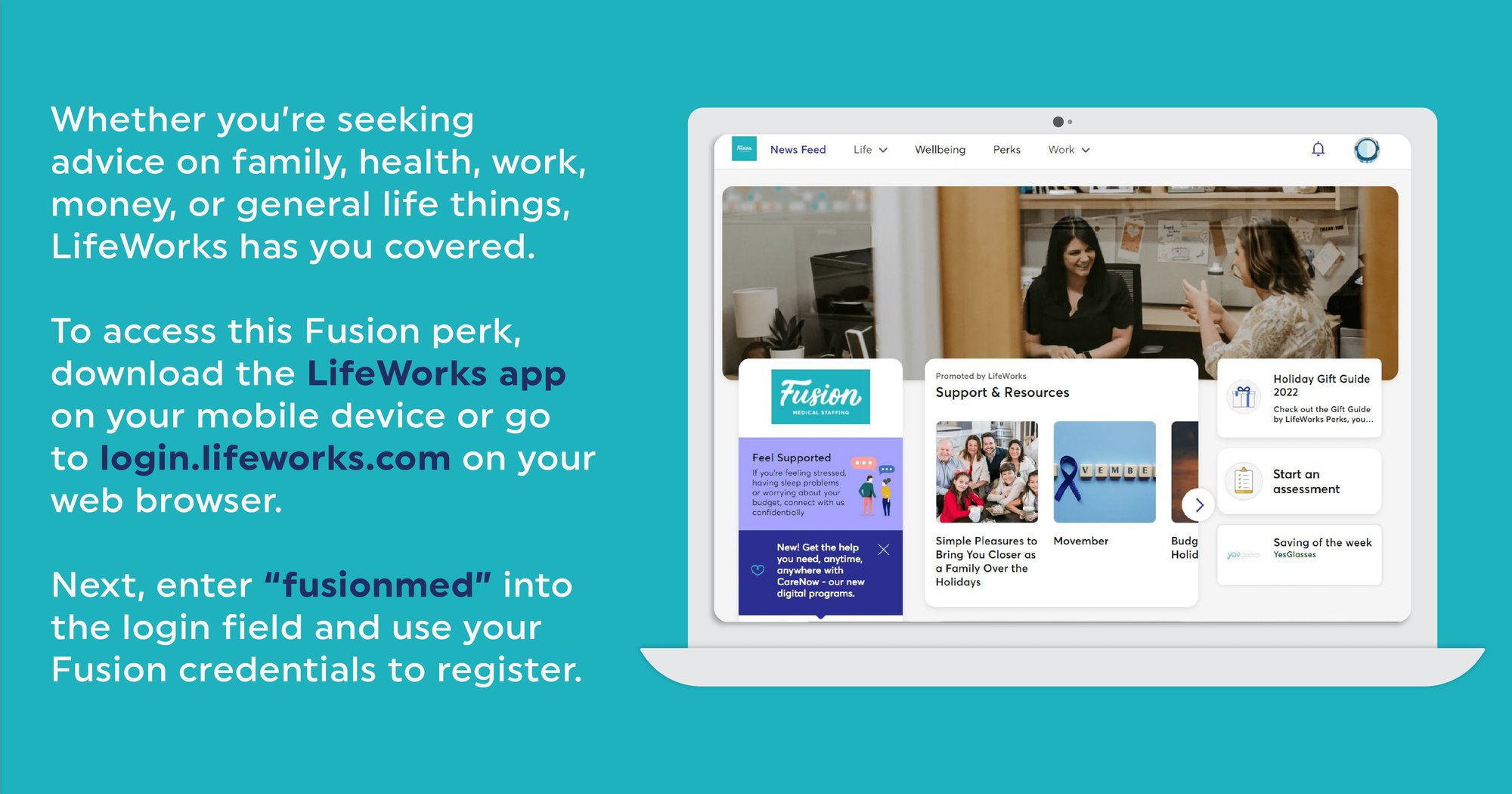
Whether you’ve been around the block a time or two, or you’re starting your very first healthcare assignment, you may come to find yourself face-to-face with pre-shift anxiety. But don’t let it stop you from embarking on your travel adventure with a positive outlook. Instead, use these tips to completely eliminate stress and begin your allied health or travel nursing journey on the right foot.
- What is pre-shift anxiety?
- Tips on managing pre-shift anxiety
- Effects of pre-shift anxiety
- ✨ BONUS ✨ Frequently asked questions
How To Combat Pre-Shift Anxiety: A Guide for Healthcare Travelers
What is pre-shift anxiety?
Have you ever thought about going to work and suddenly become overwhelmed with existential dread? That icky, gut-punch feeling is pre-shift anxiety.
The thing about pre-shift stress is it can happen to anyone, regardless of how long you’ve been in the healthcare game. From first-day nursing professionals to tenured allied travelers, shift anxiety doesn’t discriminate.
Oftentimes, healthcare professionals like you may experience anxiety symptoms before a shift because of the demanding and unpredictable nature of clinical and work shifts. With each shift comes a new and unique set of challenges and responsibilities, and the pressure to perform can be a lot.
The good news is there are many ways you can combat your pre-shift anxiety! Try these relaxation techniques to kick your anxiety to the curb.
Tips on managing pre-shift anxiety
1. Get enough sleep the night before
The saying may go “You’re not you when you’re hungry,” but you’re not you when you’re tired, either. Lack of sleep takes the “shine” out of “rise and shine” and can leave you feeling irritable, impatient, and even more stressed throughout your shift — no one wants that.
Here’s the secret on how to avoid becoming a waking nightmare at work: prioritize a good night’s rest before your healthcare shift. “Deep sleep seems to be a natural anxiolytic (anxiety inhibitor) so long as we get it each and every night,” said Matthew Walker, sleep professor at UC Berkeley.
Not only does sleep play a crucial role in setting the tone for your day but it allows your brain to declutter, process information, and recharge. Plus, solid shuteye gives your mind a breather from the racing thoughts fueled by anxiety. When you feel the pre-shift stress starting to creep in, try hitting the hay a bit earlier and let sleep work its calming magic.
2. Create an uplifting commute to work
The hours leading up to your shift can be the most nerve-wracking. But creating an uplifting commute to work can boost your mood by reducing the stress hormone and calming pre-work jitters, not to mention make traffic or crowded public transportation more enjoyable.
Related: Allied Health Podcasts to Get You Through Long Car Rides
Think about what gets you jazzed up. From travel nursing podcasts to guided meditation to 90s boy band playlists, your options are limitless. Another way to make your way to work more special is by stopping at a local coffee shop or café for a little pick-me-up.
No matter what turns your frown upside down, enhancing your commute to work can take a sometimes frustrating part of your day and turn it into a personal development session or private concert that leaves you feeling ready for the day ahead.
3. Incorporate daily stretches into your routine

Ever notice how when you’re stressed your body holds more tension? That’s because when you’re anxious, your body goes into “fight or flight” mode and releases chemicals like adrenaline and cortisol. Thankfully, easy daily stretches can help remedy those anxiety-ridden body aches.
“Stretching can keep you balanced,” said Kelvin Gary, a fitness expert, and founder and head coach at Body Space Fitness. “[Stretching] can help you keep better posture and alignment in your spine. It helps you feel physically better, which, in turn, keeps you from getting into a degraded mental space.”
Stretching helps slow down the mental chatter and washes you with a sense of calm. When you're feeling anxious and take the time to stretch, it gives your body and mind the chance to hit the pause button on the chaos around you to focus and relax.
“[When you stretch], you’re focusing on a stretching activity and on yourself,” Gary said. “You’re living in the present, and you’re not thinking about all the other things you have to do.”
No matter where you are, the next time you notice feelings of anticipatory anxiety, take a second to ground yourself through light exercise — it could give your mind and body the reboot they need.
4. Practice mindful meditation
Taming your mind in the midst of shift anxiety can be tough. But one thing that can make it a little bit easier is practicing mindful meditation.
“Mindfulness is a collection of practices nowadays, aimed to help most of us cultivate moment-to-moment awareness,” said clinical psychologist Monica Vermani. “You’re not only aware of your body; you’re aware of your surroundings and your world. It forces you to pay attention to life rather than get caught up in your head with anxious thoughts, worries, and ruminating about the future.”
Mindful meditation is a practice where you direct your full attention to the present moment and observe your thoughts, feelings, and sensations without judgment. Think of it like you’re taking a peaceful stroll in your mind, noticing and acknowledging each thought or feeling as you encounter it, but never stopping to dwell on any for too long.
“Whenever we’re anxious or we’re racing in that rat race of a world, we’re rushing so much that we do short and shallow breaths,” Vermani said. “When you do that, your muscles tighten up, your brain tends to get foggy, overwhelmed; you might ruminate.”
This meditation technique creates a space for you to respond to situations with clarity rather than reacting impulsively. The best part is you can do it anywhere, anytime, and all it requires is a conscious effort to bring your attention back to the here and now when it wanders.
Take your mindfulness practice to the next level and incorporate positive affirmations into your meditation routine. Reciting affirmations like “I am capable,” “I am calm and relaxed,” or “I am good at what I do,” gradually replaces negative thought patterns with positive ones. This practice nurtures self-belief, as well as stimulates the release of feel-good hormones.
Once you have a few mindful meditation sessions under your belt, you may notice the impact it has on your mental health. In addition to reduced anxiety and depression, mindful meditation techniques can also help manage severe panic attacks, build a stronger sense of self, and cultivate empathy. If you want to keep anxious feelings at bay before a stressful shift, carve time out of your schedule for deep breaths and meditation.
5. Find a creative outlet
When you’re overflowing with pre-shift anxiety, you have to get it out somehow. Why not in a fun and creative way?
Having a creative outlet can work wonders when it comes to managing anxiety. Engaging in creative activities, regardless of what it is, stimulates the brain and triggers the release of dopamine, aka the happy hormone. On top of that, flexing your creativity offers a sense of accomplishment and self-expression, and builds mental health resiliency.
“Different studies and research show that when we engage in artmaking, it helps the neurological system relax,” said Margaret Carlock Russo, EdD, LCAT, ATR-BC, ATCS, president of the American Art Therapy Association. “Brain chemical levels will decrease and bring about relaxation for many people, which also helps the nervous system calm down.”
Not sure where to direct your creative energy? Get your creative juices flowing and give one of these activities your best shot:
🧠 Painting
🧠 Journaling
🧠 Playing an instrument
🧠 Baking
🧠 Knitting
🧠 Salsa dancing
🧠 Gardening
What you do doesn’t matter, as long as you’re doing something. Whether you paint, write, or dance, indulging in your favorite hobby can rid your pre-shift anxiety.
6. Lean on your Fusion Medical Staffing travel team
Having a strong support system in place can make a big difference in stress reduction. Lucky for you, you have an entire community of experienced and knowledgeable professionals on your side at Fusion Medical Staffing.
Related: How To Build A Community As A Travel Nurse or Allied Health Traveler
Not only do you have a Fusion Medical Staffing recruiter who has your back, but you also have access to the clinical team when you need to talk to someone who’s been in your shoes. Leaning on your Fusion Medical Staffing travel team can help alleviate shift anxiety and make you feel more prepared for your travel nursing or allied job.
If you need some extra support with what you’re going through, you can always take advantage of the Lifeworks employee assistance program (EAP) and talk with a mental health professional. This comprehensive EAP provides a host of services for anyone dealing with mental health issues or anxiety disorders, including counseling and wellness assistance. With a qualified team of mental health experts available 24/7, you can get the support you need at any time.

Effects of pre-shift anxiety
It’s normal to feel a little on edge before a shift — many nurses and allied health professionals do. However, it’s important to manage your nerves so you don’t wind up feeling the effects of shift anxiety on top of the shift anxiety itself.
Without effective (and healthy) coping mechanisms, you may feel more stressed, burnt out, and unsatisfied in your job. All of those things combined can lead to reduced productivity, decreased care quality, and increased fatigue. Fortunately, you now know of ways to conquer shift anxiety!
Frequently asked questions
If there’s pre-shift anxiety, is there also post-shift anxiety?
Unfortunately, worry can find you before or after your shift. Post-shift anxiety is when stress lingers even after you’ve left for the day. This type of shift anxiety may make it hard to unwind or leave you feeling like you’re on the clock even when you aren’t.
On the plus side, you can use the same pre-shift anxiety remedies for post-shift anxiety! Simple practices like mindfulness, journaling, and setting clear boundaries between work and personal time can be effective strategies for managing all types of shift anxiety.
Does shift anxiety impact allied health and nurse burnout?
One of the most detrimental consequences of shift anxiety is burnout. When left untreated, your distress about work can have harmful effects on your mental and physical health, leading to burnout. Avoid allied health and nurse burnout and put these calming tips and tricks to use.
What are the benefits of overcoming pre- and post-shift anxiety?
Overcoming shift anxiety can significantly improve your professional life, as well as your overall well-being. Once you’ve faced your fears, you can reap the benefits of enhanced job satisfaction, a calm and focused mind, and improved sleep quality. Understanding your shift patterns and dealing with them in a healthy way can also promote a better work-life balance. Every step you take toward taming shift anxiety is a step in the right direction — it’s only up from there.
Nerves are a natural part of life, but shift anxiety has nothing on you. Next time the anxious feelings try inching their way into your day, use this guide to give them the boot. Incorporate regular exercise into your routine, practice mindfulness, make your commute count, and seek support when you need it — doing so can transform your pre-shift anxiety into pre-shift excitement.





